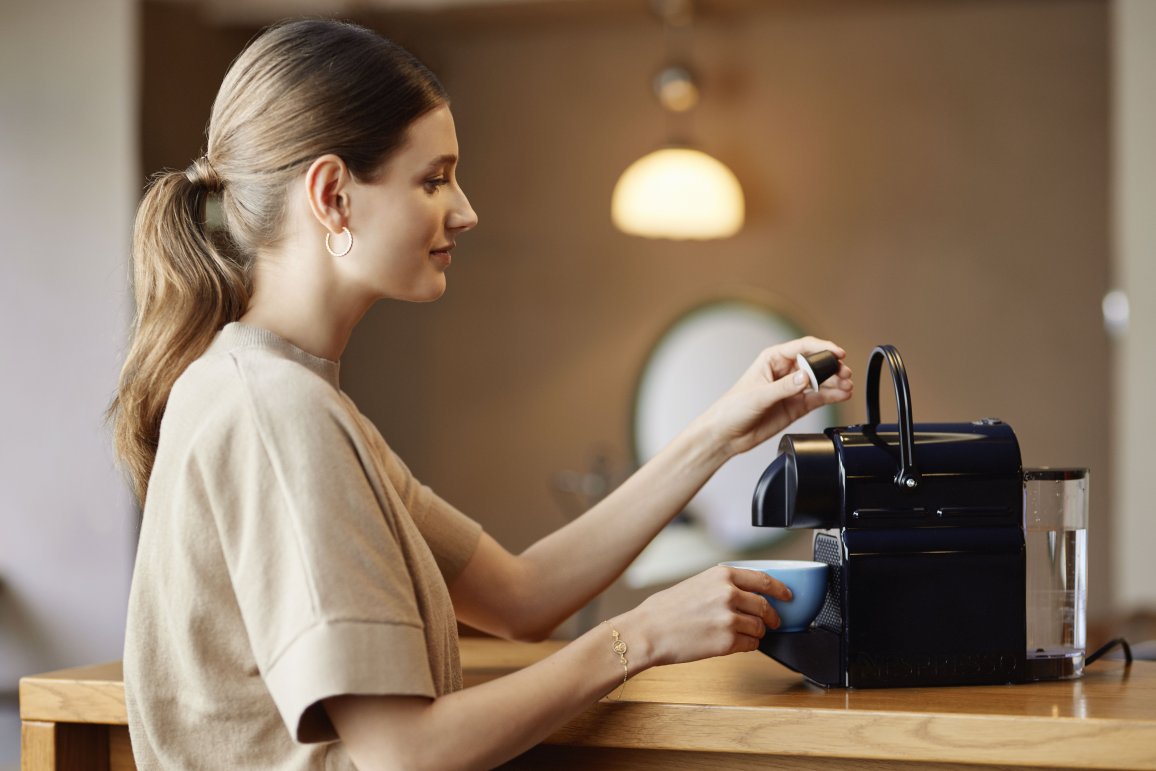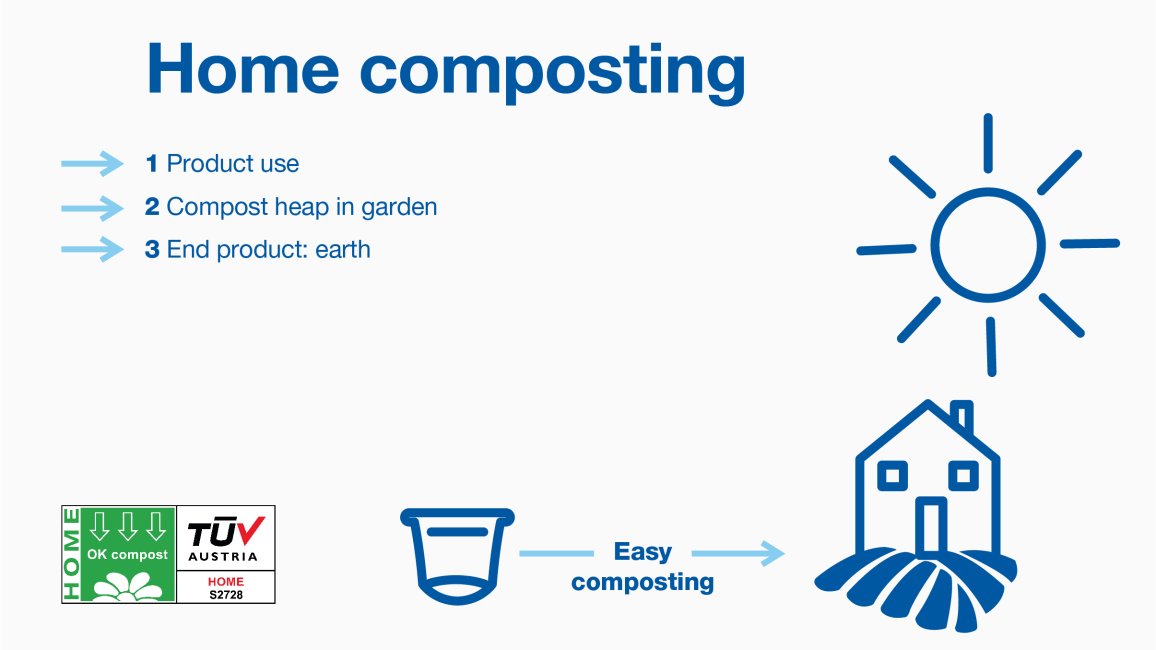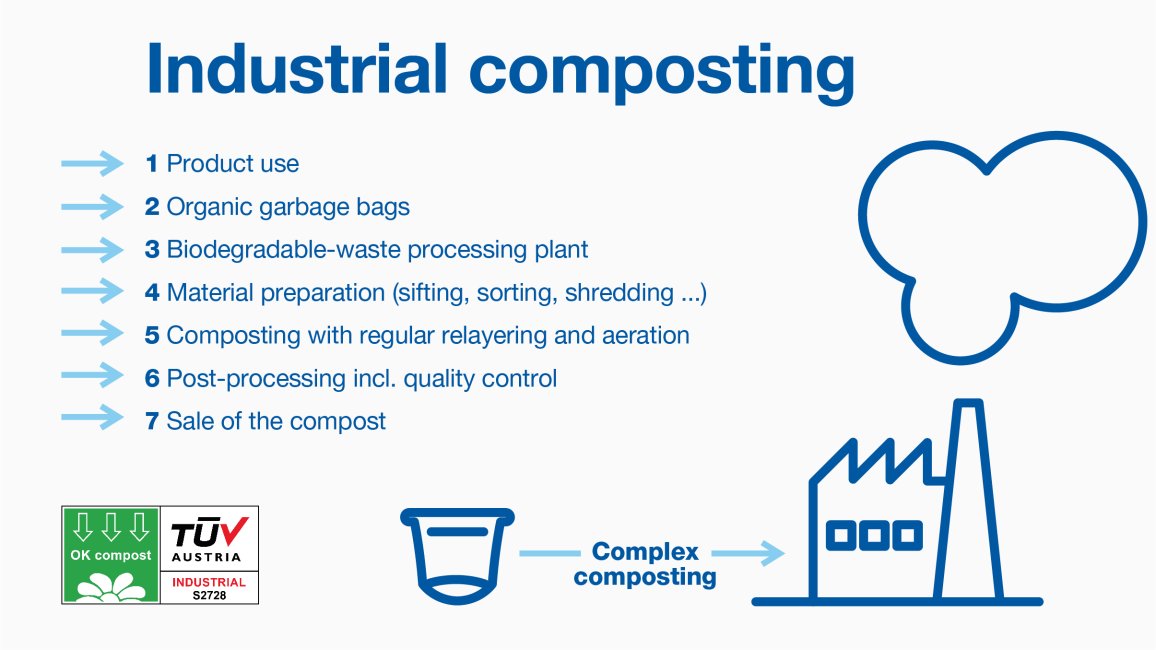Sustainable coffee capsules - it's the certificate that counts
Home-compostable and industrially compostable – two fundamentally different terms that often mistakenly end up in the same pot. Using the example of coffee capsules, ALPLA took a closer look at the biggest differences.

Many companies are currently advertising their products as compostable, and therefore sustainable. At first glance, this suggests to consumers that these products degrade easily in nature. But it’s not that simple. There are major differences, especially when it comes to the exact definitions of the terms ‘home-compostable’ and ‘industrially compostable’.
To shed light on the matter, ALPLA took a look at which criteria have to be fulfilled in order to obtain the respective certifications and what the key advantages of a home-compostable product are. This concerns the biological decomposition of the raw material and the decomposition of the end product, as well as the temperatures and duration at which the respective results are expected.
Exceeding the criteria
Home-compostable materials decompose to at least 90 per cent within 12 months when subject to variable conditions, such as those found in compost heaps in your own garden. This means they exceed the criteria for industrially compostable products, which can only be broken down using technology and machinery in a controlled environment.
The home-compostable Blue Circle coffee capsules also go far beyond the industrially compostable level when it comes to the requirements relating to the decomposition of the end product. To be certified as home-compostable, a maximum of 10 per cent of the product may remain in a 2x2 mm sieve fraction under variable conditions after six months. Industrially compostable products meet the criteria in less time, but only under very specific conditions. Outside of these conditions, decomposition takes considerably longer.

Different lengths of time
The home-compostable coffee capsule can be disposed of right away in your own compost heap. Since organic waste decomposes in a natural environment at around 20°C, the nutrient-rich soil can be reused immediately afterwards.
In contrast, industrially compostable material takes a longer journey from disposal to becoming reusable compost. After being transported to the organic waste facility, the material is prepared, crushed and processed in a controlled composting process with regular repositioning. The finished compost can only be sold after a final post-treatment and quality control.

Enjoying sustainable coffee
As a family-owned enterprise, the ALPLA Group is aware of its responsibility to develop and produce sustainable solutions to ensure a future worth living in. That is why ALPLA went one step further and had the capsule certified by Blue Circle Packaging, an ALPLA Group brand, going beyond the legal requirements. This specifically refers to the way the capsule comes out of the brewing chamber of the coffee machine, including the filter fleece and coffee grounds.
Unlike many alternatives on the market, this guarantees truly sustainable enjoyment for all coffee lovers.
Do you like our texts? Perhaps even so much that you want to use them in your own media? Then please get in touch with us beforehand!
